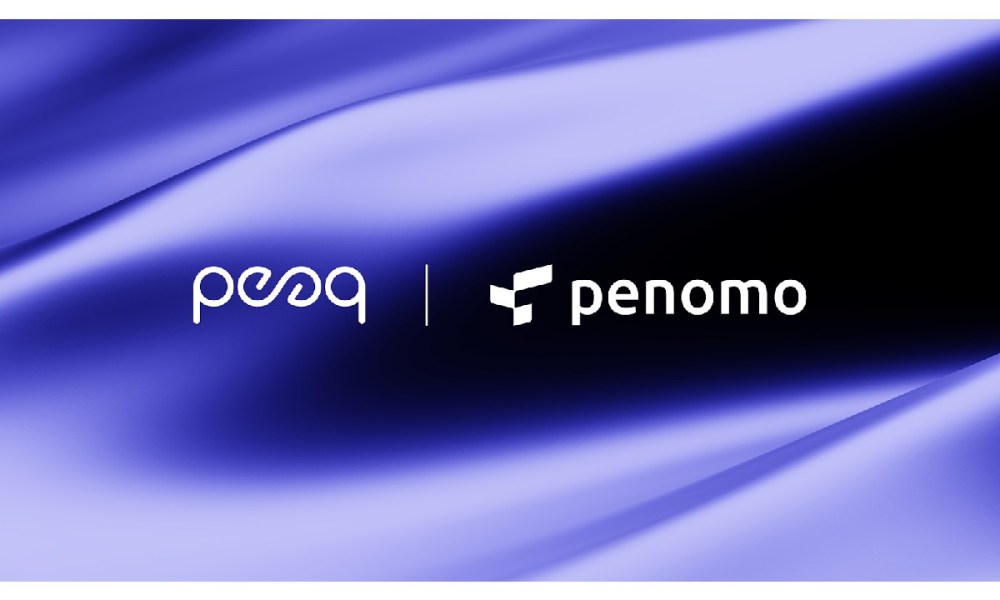peaq, the go-to blockchain for real-world applications, announces the expansion of its ecosystem as penomo joins in to build a network of tokenized batteries. penomo is a monetization platform for eco-friendly energy storage businesses, especially those which re-use or recycle electric vehicle (EV) batteries. With penomo, these batteries will run as a decentralized physical infrastructure network (DePIN) earning rewards for the borderless community of Web3 investors by pooling new revenue streams such as selling carbon credits to companies looking to go carbon-neutral.
penomo will leverage peaq, Australian betting and its core functions, including self-sovereign multi-chain peaq IDs and peaq pay, peer-to-peer machine payments.
Lithium-ion batteries are a crucial component of sustainable power grids, storing spare energy for times when no sun rays hit the solar panels and no breeze spins the wind generator turbines. They also power electric vehicles, increasingly popular due to their sustainability. However, lithium extraction comes at a major cost for the environment, and businesses working on various sustainable solutions, such as green energy storage or battery recycling, often struggle to set up sufficient income streams and access liquidity fast, making for a major hurdle to the push for an eco-friendlier energy paradigm.
penomo enables businesses that accumulate sustainable energy to monetize their batteries quickly and efficiently. With penomo, such businesses can tokenize their batteries, offering the global Web3 investor community a portion of their future revenues to raise funds and turn batteries into liquid assets. They can also sell carbon credits or carbon credit futures to companies on-chain, monetizing the positive impact they make on the environment. In total, this unlocks three prospective revenue streams that all offer access to global capital and fast liquidity.
penomo will leverage peaq and its core functions, including self-sovereign multi-chain peaq IDs and peaq pay, peer-to-peer machine payments, to set up the fractional ownership mechanism powering its DePIN. Businesses adding their batteries to the penomo DePIN will outfit the hardware with peaq IDs through penomo’s app, which will also leverage peaq to tokenize the batteries, automatically distribute the rewards between investors, and facilitate sales of carbon credits and, optionally, battery data.
At the current stage, penomo, which is an incubation of EoT Labs, the company developing peaq as an open-source layer-1 blockchain for real-world applications, already has 4 letters of intent with energy storage and recycling companies, including Evyon. It is also in talks on paid proof–of-concept and co-development with two major multinational enterprises and has been endorsed by at least 10 major companies, including prominent automakers and energy businesses. Jasvir Dhillon, penomo’s co-founder, is also the EoT labs lead for KI2L, a project led by Fraunhofer HHI, part of one of Europe’s largest research organizations; the project taps AI to make EV batteries more sustainable.
“It’s encouraging to see so much market pull for penomo’s solution,” says Jasvir Dhillon, penomo’s co-founder and CEO. “Multiple decision-makers from relevant companies are reaching out to us themselves, even though we’re yet to spend a dime on marketing. We are thrilled to be building a solution that embraces the regenerative finance ideas by merging sustainability with business innovation. As a layer-1 built for DePINs, peaq is the perfect home for a project like this, bringing handy pre-built functions and tailor-made economics to the table.”
“penomo is addressing a major pain point for businesses working to make energy storage more sustainable,” says Till Wendler, co-founder of peaq. “Its DePIN of tokenized batteries will enable the Web3 community to invest in sustainable projects and earn rewards from energy preservation, while also driving enterprise adoption of peaq.”














Got a Questions?
Find us on Socials or Contact us and we’ll get back to you as soon as possible.